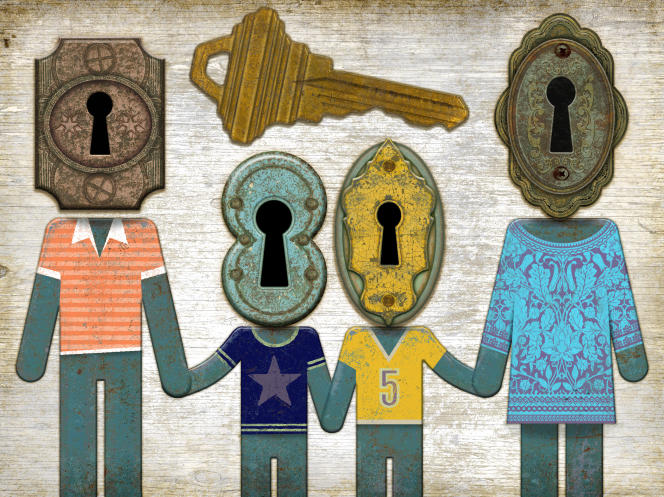Lisa is hard-headed. Arguments with his mother sometimes made the walls of their house shake, in Roubaix (North). Often, the screens are at the heart of the problem. When the 10-year-old girl comes home from school, it’s tablet, TV, phone. If they are taken away from him, the doors slam. Sometimes, when this little blue-eyed brunette gets angry, the blows go off. Friends trying to harm him? They leave with a knuckle soup in their stomachs. What make Stephanie, her mother (all names have been changed), want to give up.
But one day at noon, Lisa’s gaze softened. At the table, the little girl is confused in apologies. She promised her mother to listen to her and make sure to keep her calm. The click? A few hours earlier, both had gone to a session of the family and parenting support program (PSFP), funded by the regional health agency. A series of workshops adapted from an American therapeutic device developed to prevent delinquency and addictions.
For a whole term, two hours a week, parents and their children aged 6 to 11 engage in practical exercises, in small groups, to improve their behavior. At the second session, Stephanie has learned “four attitudes (…) to help children express their emotions. Two weeks later, she trained to spot the “appropriate expectations” at each age. So there is no longer any question of letting Lisa babysit her 6-year-old brother. The next time, the mom learned to ignore her daughter when she drags her feet or huffs in anger.
Adopted by nineteen cities in France, the device launched in 2010 is not well known. It is, however, a small revolution. For the first time, the State is setting up a public program to “learn” parental behavior deemed to be more effective. A form of evening classes in parenthood, directly provided by the public authorities, and with a preventive aim: Public Health France, the national public health agency, thus tries to prevent young people from developing behavioral problems and indulge, in adolescence, in “binge drinking”. To date, only 1,035 parents and 1,286 children have benefited from it.
Exercises that “feel good”
When her social worker offered to take part in these workshops, Stéphanie initially refused. “Everyone has their own way of raising their kids! », thought this 37-year-old housewife, mother of three, handicapped by nasty scoliosis. The social center that houses the PSFP is a stone’s throw from her home, in the middle of the brick buildings of L’Hommelet, one of the poorest neighborhoods in France. She first decided to go with Lisa, just once, just to show that she was showing good will. But, very quickly, she changed her mind. “We got caught up in the game. And one day we came home a little lost, realizing that, all the same, the exercises were good. »
You have 74.21% of this article left to read. The following is for subscribers only.
